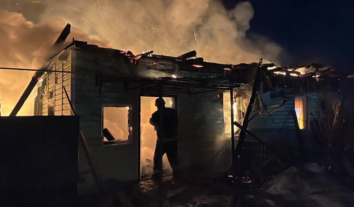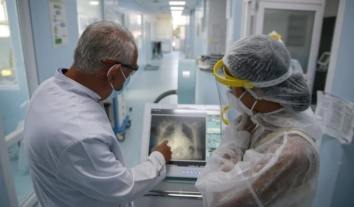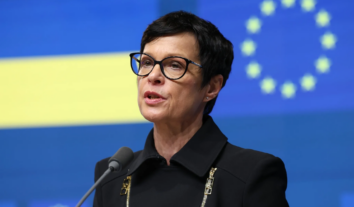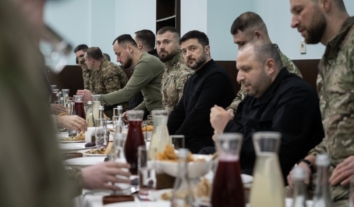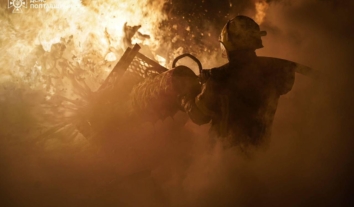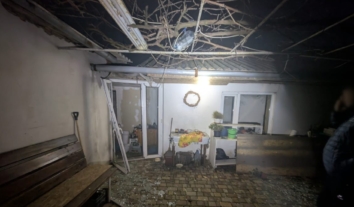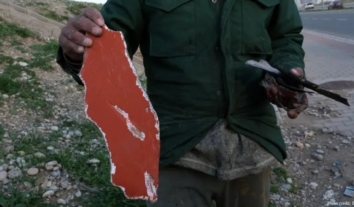Human rights crisis in occupied Crimea: wave of persecution targeted voices against Russia and its war in 2022
In 2022, a wave of persecution swept across Crimea, a peninsula in the South of Ukraine occupied by Russia since February 2014, targeting individuals who have expressed anti-war views or sympathy towards Ukraine.
These findings are included in the report “Review of the situation with human rights and adherence to norms of international humanitarian law in Crimea after the beginning of Russia’s full-scale war against Ukraine,” published by the human rights initiative Qirim Gayesi. і
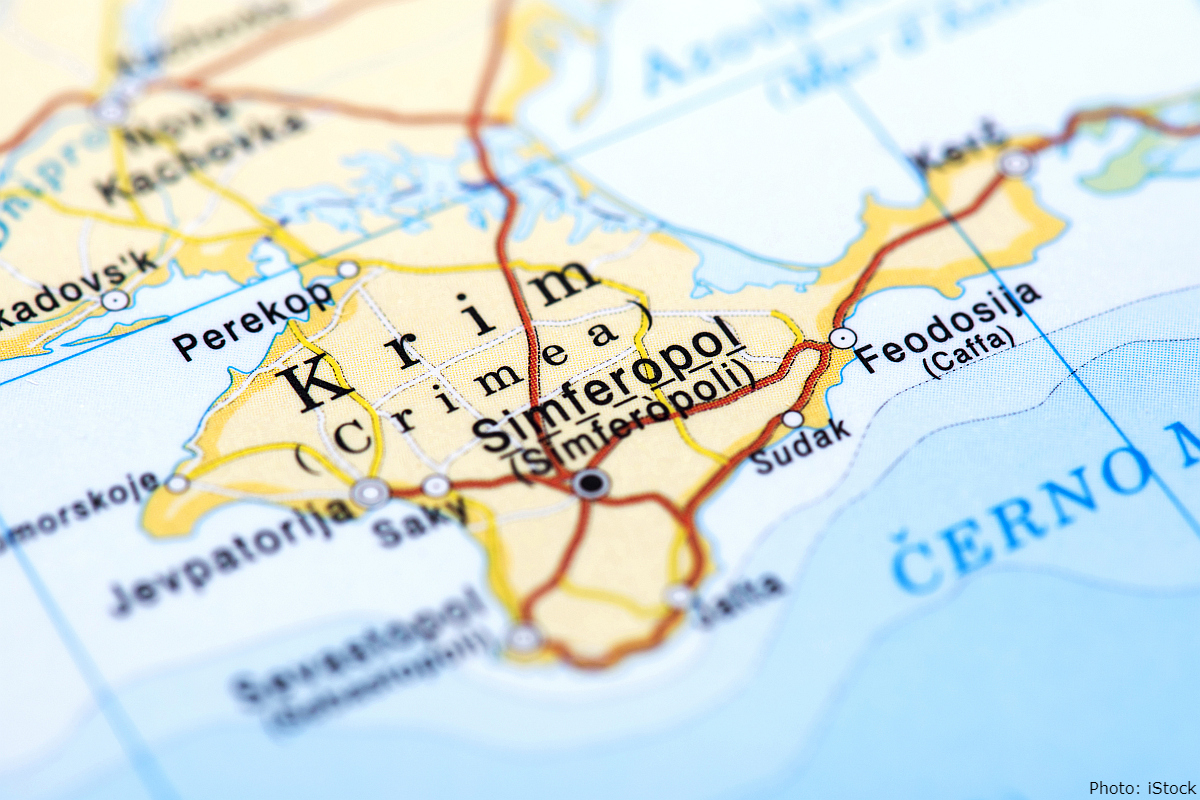 A map of the Crimean peninsula. Photo: iStock
A map of the Crimean peninsula. Photo: iStockPeople who expressed anti-war views or sympathy towards Ukraine became the primary target of Russia’s repressions.
Crimean human rights defenders characterized the crackdown on dissent in the occupied Crimean Peninsula as part of a broader campaign by the Russian authorities to silence all opposition to their policies in the region. They report that Moscow has tightened its grip on the temporarily occupied peninsula in recent years, imposing new restrictions on freedom of expression and assembly and cracking down on any form of dissent.
The situation for those who have expressed anti-war views or sympathy towards Ukraine is particularly dire. According to reports, many individuals have been subjected to harassment, intimidation, and even physical violence by pro-Russian groups. Some have been arrested and charged with crimes on trumped-up charges, while others have been forced to flee the temporarily occupied region to escape detention.
Since the beginning of Russia’s full-scale invasion in February 2022, there has been a rapid growth in the number of criminal cases with accusations of alleged cooperation with Ukrainian special services or military officers. In 2022, at least 26 residents of Crimea faced criminal prosecutions based on flawed suspicion of committing the crimes mentioned above.
Twelve cases involve Crimean Muslims affiliated with the Islamic political organization Hizb ut-Tahrir, which has been subjected to systematic persecution throughout the entire period of occupation. Media outlets controlled by Moscow in the temporarily occupied Crimea have suggested that acts of sabotage on the peninsula could be attributed to the work of Hizb ut-Tahrir.
Other trends of the previous year include charging Crimeans with misleading accusations of sabotage (five criminal cases), espionage (four criminal cases), participation in illegal military units (three criminal cases), storage of explosives (one criminal case), and conspiracy to assassinate the top officials of Crimea (one criminal case).
Quirim Gayesi recorded at least 13 cases of criminal prosecution for expressing a critical opinion of the war or acts of aggression committed by Russia against Ukraine.
The outcomes of three such cases are known, with two cases resulting in imprisonment. In one case, Alushta resident Aleksandr Tarapon was sentenced to two and a half years in custody for posting posters that condemned the crimes of the Russian military in Ukraine. Though such activity of peaceful critical expression of one’s views is protected under international human rights law.
According to human rights defenders from Quirim Gayesi, Russian legislation on the prohibition of “extremist” or “Nazi” symbols has been widely applied to put pressure on residents of Crimea who oppose the war or support Ukraine. At least 18 people have been arrested under one pretext or another after expressing their views. In fact, legal proceedings have been used as an instrument of intimidation of Crimean Tatar activists since the beginning of the invasion in February 2014.
For example, a prominent human rights defender Abdureshyt Dzhepparov and a national Crimean Tatar movement representative Zair Smedlyae were arrested on charges that they had distributed illustrations on social media that included Nazi symbols.
Two-thirds of the arrests in 2022 in Crimea targeted individuals singing Ukrainian songs in public.
Crimean human rights defenders highlight the performance of the song “Chervona Kalyna,” a famous Ukrainian pop music, at a wedding in the city of Bakhchysaray in the South of the peninsula on September 10 of last year as an example of resistance. A video of the wedding garnered significant attention on pro-Russian social media channels, and on September 12, a Russian blogger falsely concluded that the song served as an anthem for an organization recognized as extremist and banned in the Russian Federation.
On the following day, Russian occupying forces arrested five people from the event, including the owner of the café where the wedding had been held, the DJ, the master of ceremonies, and the fiancé’s mother.
Since March 4, 2022, critical statements regarding the actions of the Russian army and expressions of support for Ukraine have been deemed an administrative offense, according to the report. Official sanctions such as issuing protocols, holding court proceedings, and imposing fines have been compounded by acts of physical and psychological violence against “perpetrators,” which directly violates Art. 27 of the Fourth Geneva Convention Related to Protection of Civilian Population in Time of War that guarantees that residents of occupied territories “shall at all times be humanely treated, and shall be protected especially against all acts of violence or threats thereof and against insults and public curiosity.”
Unjustified physical violence is frequently employed during the detention of men for the issuance of administrative offense protocols in Crimea. For example, pro-Russian activist Aleksei Yefremov was forcefully knocked off his bicycle, after which the officers twisted his hands and then beat him, demanding that he unblock his mobile phone.
Similarly, pro-Ukrainian resident Andrii Belozyorov was handcuffed, forced onto the ground, and subjected to a beating. During this process, officers stepped on his head and inflicted injuries on his earlobes.
Almost all people detained for their criticism of the Russian army’s actions and their statements in support of Ukraine have been forced to make a public apology, via video recording, and to say words of support for the Russian army, sing the Russian anthem, or do other actions contrary to their beliefs.
According to the Mission of the President of Ukraine in the Autonomous Republic of Crimea, at least 181 individuals are held in custody or imprisoned on the territory of the temporarily occupied Crimea or Russia.

